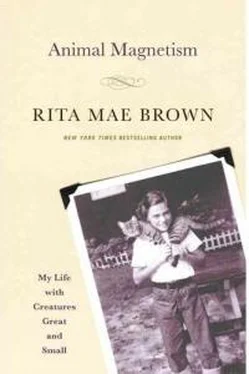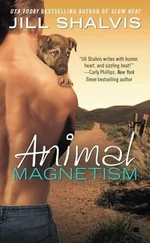Blackbirds hate foxes. They’ll mob them sometimes. They make a specific sound much like a mob of humans, whose reason, or at least sense of responsibility, seems to diminish the bigger the group gets. Shakespeare wrote scathingly of the mob, and he was right. Blackbirds seem to possess these same qualities. Their mobbing is hostile. If I hear that sound, I can be pretty sure my fox is moving and they are flying over him or her. But blackbirds also gossip. How they gossip. If only I knew what they were saying. You can hear them making a clicking sound, a happy sound as they merrily blather on. Then there’s the distinctive call note. Most birds have a call note as well as a true song. I wouldn’t say that blackbirds sing, but they do emit a series of notes that probably pass as a song among them. This music is precious to someone studying foxes.
Owls can tell you a lot about foxes, too. Sometimes they will shadow a fox, going from tree to tree or flying over the animal. Took me years to figure out why. It should have been obvious, but I never said I was smart. Foxes and owls hunt the same game. One can assist the other, whether it’s intentional or not. An owl isn’t going to swoop down and steal the fox’s kill because the fox can and will catch it. Given the talons and a good-sized owl, this can be a bloody, costly struggle. But once the fox picks up its rabbit or mouse and moves on, the owl can fly down and kill any mice lurking about.
Occasionally I’ll see raptors watching foxes, too, pretty much for the same reason as the owls. The raptors—hawks, falcons, and kites—have an Achilles’ heel. Sooner or later, they have to let you know how important they are. And the sounds they make are truly distinctive, piercing and easy to read. The owls—maybe they are wiser—shut up. So do the foxes, for the most part.
We humans, like the raptors, belong to the babbling class. We even pay people to talk. This would astonish even the most garrulous blackbird. It astonishes me, but I like the paycheck.
Here I am on Peggy Sue, a beautiful Percheron who reminds me of my very first horse, Suzie Q.
My First Horse, Suzie Q
M any humans learn to feel love from a dog or cat. Not too many have felt it from a horse. The emotion is as big as the animal. Given my mother’s great passion for horse racing and the fact that I lived in horse country, I had grown up around horses. But we didn’t own any.
How desperately I wanted to ride.
“You’ll ride after you learn to take care of horses,” said Mother. “You’ll muck stalls, feed, water, groom, pick up their hooves and clean them out. None of this just hopping on, young lady. There’s a world of difference between being a horseman and being a rider. Riders are a dime a dozen. Horsemen are rare.”
As a first-grader, no hack barn wanted me. They figured small, young, and dumb, and pretty much they were correct. Mother dutifully made the rounds seeing if she could find me a little work. A hack barn is a barn that rents horses by the day. There used to be loads of them. These days, thanks to our litiginous age, few remain.
“Mother, maybe Mr. Byrd would let me work on the farm after school or before school.”
Tweetie Byrd was a local farmer who owned over a thousand acres of good soil, and lived quite comfortably. He ran to fat even though he worked hard. He was descended from the august Byrd family of Virginia. This fact crept into most conversations with Tweetie—that and the price of a bushel of corn.
Tweetie’s Percheron draft, Suzie Q, had a beautiful dappled coat that was truly eye-catching. She was well made, well proportioned. And she looked at you with the kindest sweet brown eyes. I loved her.
“Tweetie, pay help?” she roared.
“If he let me ride Suzie Q, that would be my pay.”
We were at the big open stall market during this discussion. A late-season cantaloupe filled her hand. She examined it and dropped it in her grocery bag. “You might have something there, kid.”
Once home we put away the groceries. The Norge refrigerator made a racket in the kitchen. The springhouse could still keep milk and cheese cool, but the refrigerator was handier. Still, I didn’t like it.
I swept out the kitchen, trying to be more than usually helpful. Since I had to be browbeaten into housework but would willingly perform outdoor chores, this seemed a big deal to me.
Mother laughed. “All right.”
She skipped (yes, she skipped a lot) to the black phone in the hall. It was a party line. Our number was four digits. Mother complained it was hard to remember everyone’s number because they used to be three digits. That was before I was born. Four seemed okay with me. Fortunately no one else on the line was gabby, although Mrs. Mundis didn’t mind eavesdropping on conversations, nor did Vergie Walker.
It used to frost Mother. She’d finally say in a clear tone, “Vergie, will you get off the line?” Naturally not a peep was heard from the ever-curious Vergie, but you did hear the faint click on the line that meant she’d hung up.
She dialed Tweetie.
“Tweetie, Juts. How are you?”
I couldn’t hear what he was saying.
“I’ve got an able-bodied young lady here who will work for you in the mornings or after school for free in your barn. Her remuneration will be time with Suzie Q. Now, I call that a good deal. She’s young and small but she’s mighty.” She liked to describe me like that, her mighty mouse.
Saturday at six in the morning I was dropped at Tweetie’s by Dad on his way to work. Dad and his brothers owned a grocery store and meat market that had been in their family since before the Revolutionary War. When you own your own business you work all the time. He seemed to like it, though. He was a good businessman. He put people before money, which taught me you can. Because of sympathy and humor, business never slacked. He wasn’t a Pollyanna but if he had to do with less to help someone eat, then he did.
Tweetie—Mr. Byrd to me—welcomed me and handed me a pitchfork. He showed me where the straw was for bedding, where to dump the manure, where to wash out the wheelbarrow, and where to put it when I was finished. He had written down in careful cursive handwriting each horse’s dietary needs. He owned five horses, two pairs of matched Percherons for the plow as well as to drive, and Suzie Q, reserved only for foxhunting. Like I said, he was a successful farmer. He also owned a Brewster carriage, deep maroon with pinstripes. My God, it was a work of art, and I’d kill to own it.
He covered the packed dirt floor of the stable with cedar shavings. The aroma was so pleasant and invigorating. I had to pick out the center aisle, replace the cedar shavings, then rake the aisle.
Fortunately, the barn had electricity. He had splurged on a big water heater which was outside the work stall, enclosed in a small insulated structure. Hot water. What a luxury. The tack room was tidy, every bridle had its home, every saddle sat on its own rack. A small wood-burning stove reposed in the corner. It had been there since the early nineteenth century.
Tweetie bought oats in huge quantities and had them blown into a large outdoor corrugated zinc holder at the side of the barn. Think of it as a four-sided silo narrowing at the bottom. You flipped the latch, and out rushed the oats. He crimped them himself because it saved money. A crimp is a kind of slice or depression so the hull is split but not removed from the oat. He could have bought them crimped and steamed but it’s more expensive. Crimped oats digest better, so the horses don’t waste as much feed. They’re just the best. Given the ease of prepared foods, people rarely use them today. As always with horsemen and equine vets, people have strong opinions. Some will argue against crimped oats. They may be right but Tweetie’s horses gleamed.
Читать дальше












